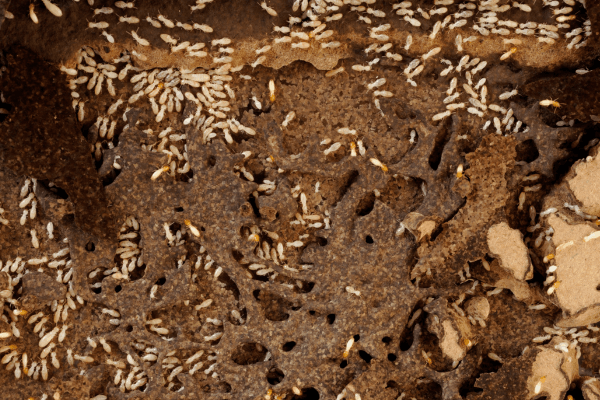Understanding a termite life cycle can help keep your home protected from these subterranean soldiers!
Last month we looked at a cicada's life cycle. This month we are going to take a look at an even more invasive South Carolina pest- termites! Termites are subterranean warriors that can wreak havoc on your home. Understanding the termite life cycle can help you stay one step ahead of these pests.
Termites in South Carolina
Subterranean termites are social insects that live in colonies beneath the ground. The Formosan termite is a particularly destructive and aggressive species of subterranean termite. Both are prevalent in South Carolina. Their life-cycle consists of several stages, each with its own specific roles and characteristics.
A Termite Life Cycle
Egg Stage
The life cycle of a termite begins with the egg stage. The queen termite, the primary reproductive member of the colony, lays eggs in underground chambers or within the colony's nest. These eggs are small, white, and oval-shaped.
Termite Nymph Stage
After a short incubation period, the eggs hatch into nymphs. Nymphs are young termites that resemble smaller versions of the adult termites. During this stage, they are not yet fully developed and undergo a series of molts to reach adulthood.
Worker Stage
The majority of a termite colony consists of worker termites. Workers are responsible for tasks such as foraging for food, building and maintaining tunnels and galleries, and taking care of the young termites. They are also the ones that cause damage to homes and other wooden structures in search of cellulose, their primary food source.

Soldier Termites
Some of the nymphs that molt will develop into soldiers. Soldiers are larger and have more robust mandibles or jaws, which they use to defend against potential colony threats. They protect the colony from predators, such as ants.
It is during the worker and soldier stages that you may begin to notice termite activity. During the next stage, you may also find termite swarms as the colony grows. If you see any signs of termites in your home, it is crucial to call a pest control company immediately.
Reproductive Stage
At a certain point in the colony's development, some of the nymphs will develop into reproductive termites, called alates or swarmers. These are future kings and queens of new colonies. When the conditions are right, usually during spring or early summer and after rainfall, swarms of alates take flight and engage in mating flights. After mating, they shed their wings and find suitable locations to start new colonies.
Queen Stage
The successfully mated female alates become the queens of the new colonies. They burrow into the soil and start laying eggs. The queen's primary role is to produce a large number of offspring to build and sustain the colony. A mature queen can lay thousands of eggs each day.
A termite life cycle is essential for colony growth, survival, and expansion. Each member of the colony is well-organized and efficient in carrying out their various tasks, making them a significant pest threat to Georgia homes, where they can cause extensive damage before you even know they are there. Proper termite control and prevention methods are crucial to manage infestations and protect property.
Termite Prevention in South Carolina
With years of collective experience and a wealth of knowledge and training, Old South Exterminators offers dependable and effective protection against termite damage. We strive to provide the same quality of excellence that first began in 1968, and that mission follows through to our termite prevention services. Our termite control plans are customized to your home and your needs. Contact us today to help you protect what matters most!


